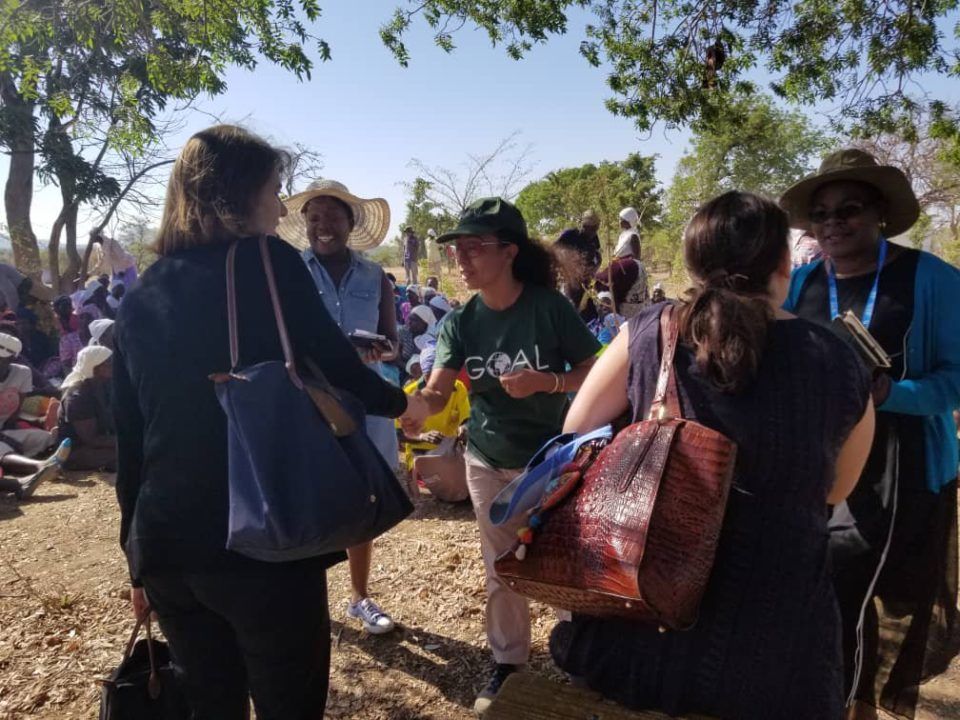 Blogs
Blogs
November 13, 2019 • 2 min read

Gabriella Prandini, Country Director GOAL Zimbabwe
I hadn’t been in the field since GOAL wrapped up its Cyclone IDAI response. So when I found myself in Mutare District in Manicaland Province I was very eager to oversee the activities on the ground and to speak with the community.
This part of the country is one that has traditionally not needed food aid. But this year, due to the prolonged drought and the deepening economic crisis, over 3.6 million people in Zimbabwe, including Manicaland Province, are food insecure and mostly unable to eat more than one meal a day.
Today is the first day of our Lean Season Assistance Program in Chigonda village. Here GOAL, in partnership with the World Food Program and funded by USAID, is distributing 7.5 Kg of sorghum, 800ml of oil and 1.5 kg of pulses to 85,000 beneficiaries at the primary school. Whilst the registration process is underway, I remain as always surprised by the concept of time with rural populations. This community has been patiently waiting for the process to finish.
I approach one of the mothers sitting on the ground to ask her if she needs to get back to her chores or work. She responds by saying that she is unemployed, and has not prepared the land yet for the agricultural season because she does not have money to buy seeds and fertilizer.
The inability to plant during the rainy season for these farmers who are 100% dependent on the rain effectively means that they will continue to be in need of food aid for the months to come.
I then move on to greet the local school headmaster and ask him how the pupils are performing and if they are attending classes. He explains to me that at least 40% of the parents are unable to pay the school feels which are the equivalent of USD 1 per term. The ones who manage to come to school have only eaten one meal the previous day and are unable to focus.
I only know a handful of words in Shona, the local language, and today I have added the word “nzara” which means hunger. I can feel it in the air. I can see it in their faces, and I can hear it as they say it intermittently as they explain the challenges they are facing.
I leave Chigonda village, and I am filled with disbelief that we are in 2019 and there are children going to school hungry, children who can’t go to school because their parents don’t have 1 dollar to spare, and adults who have gone back in time and are now bartering whatever they have for a bucket of maize.
When I ask what happens to those that don’t have anything to barter I am told; they go hungry.
